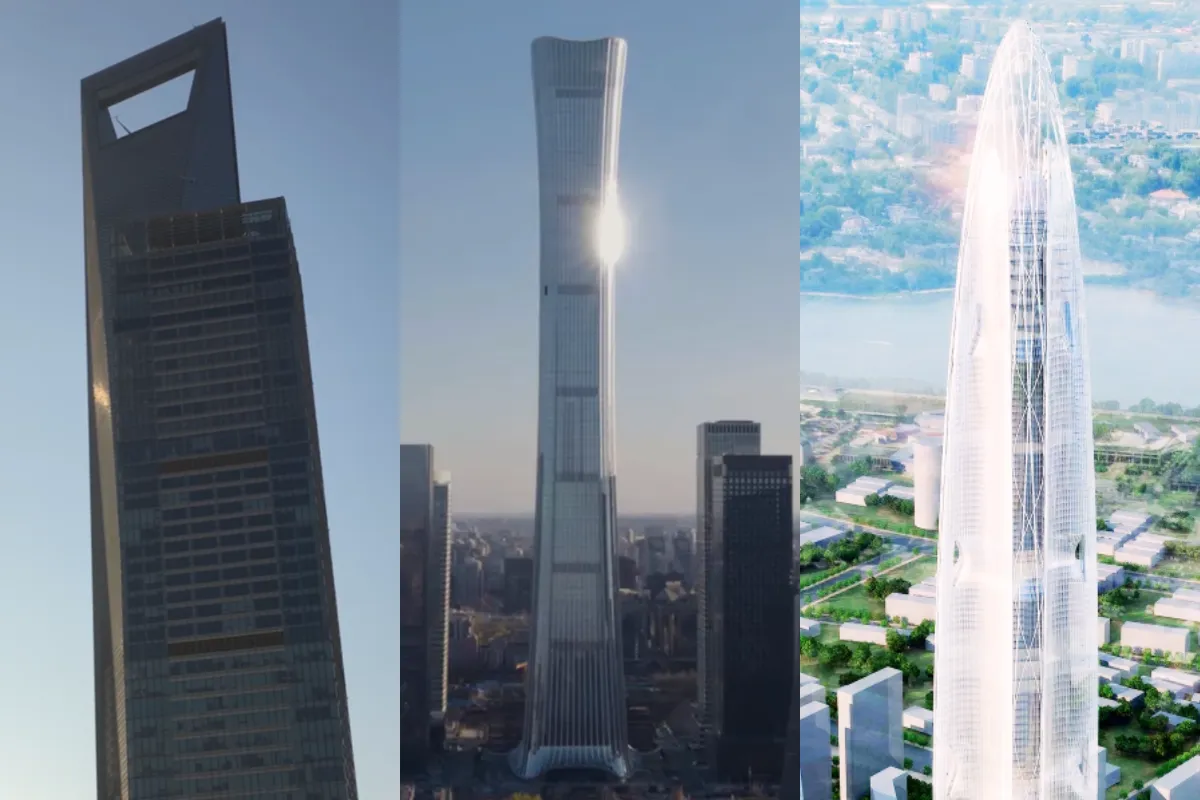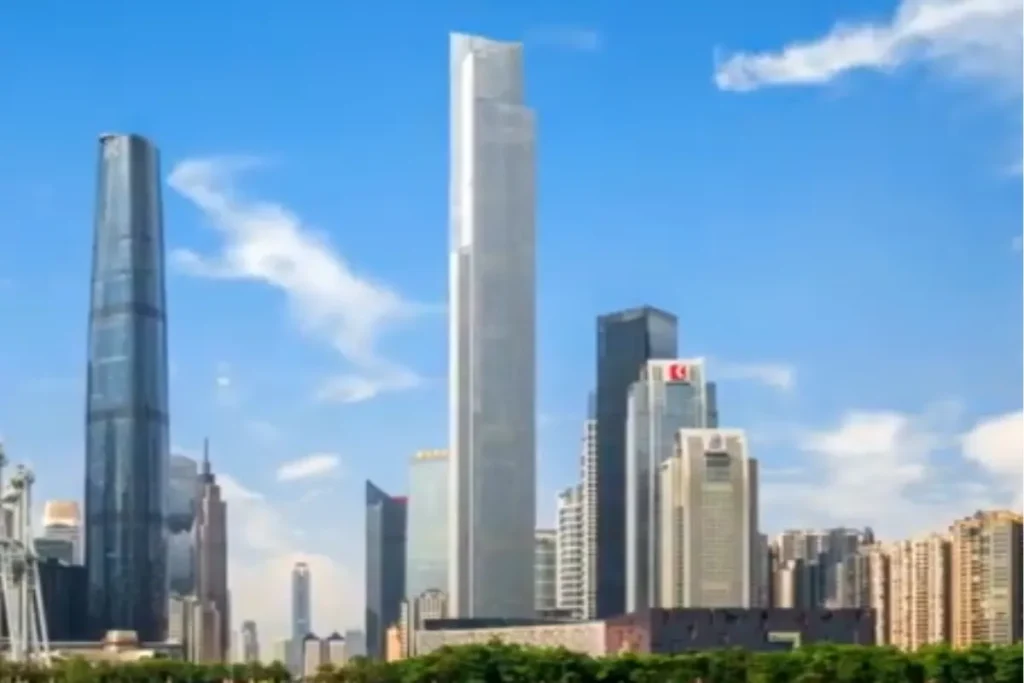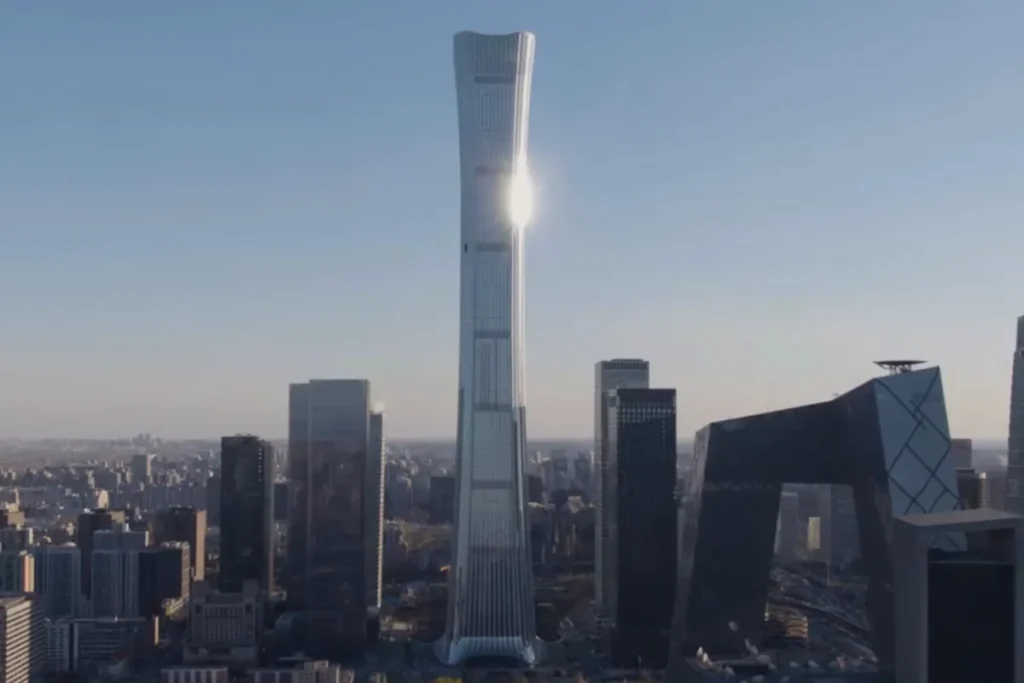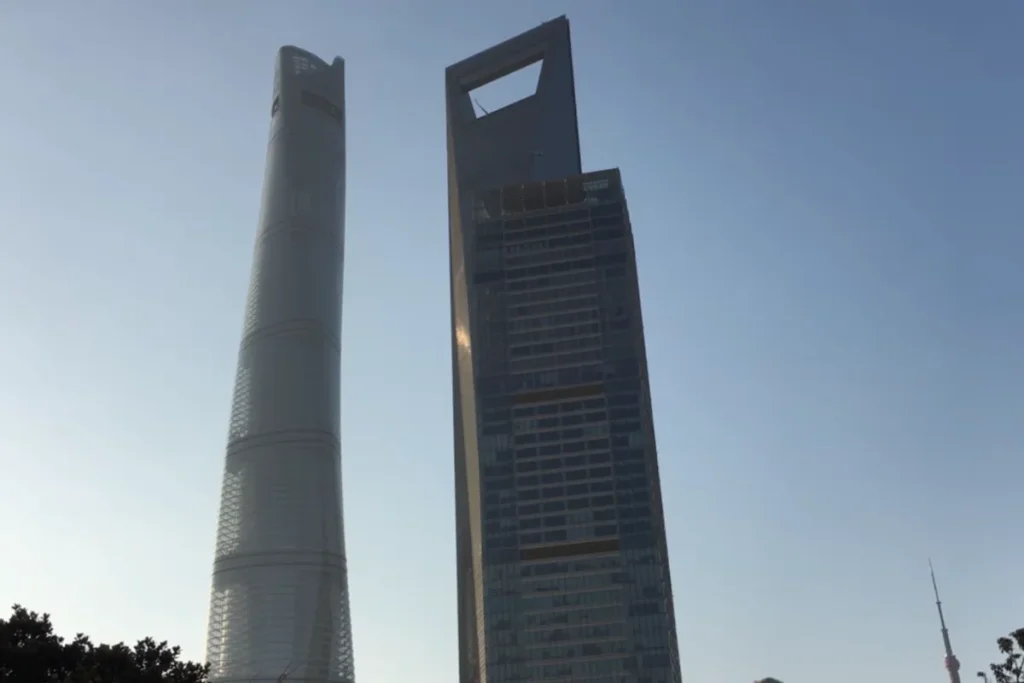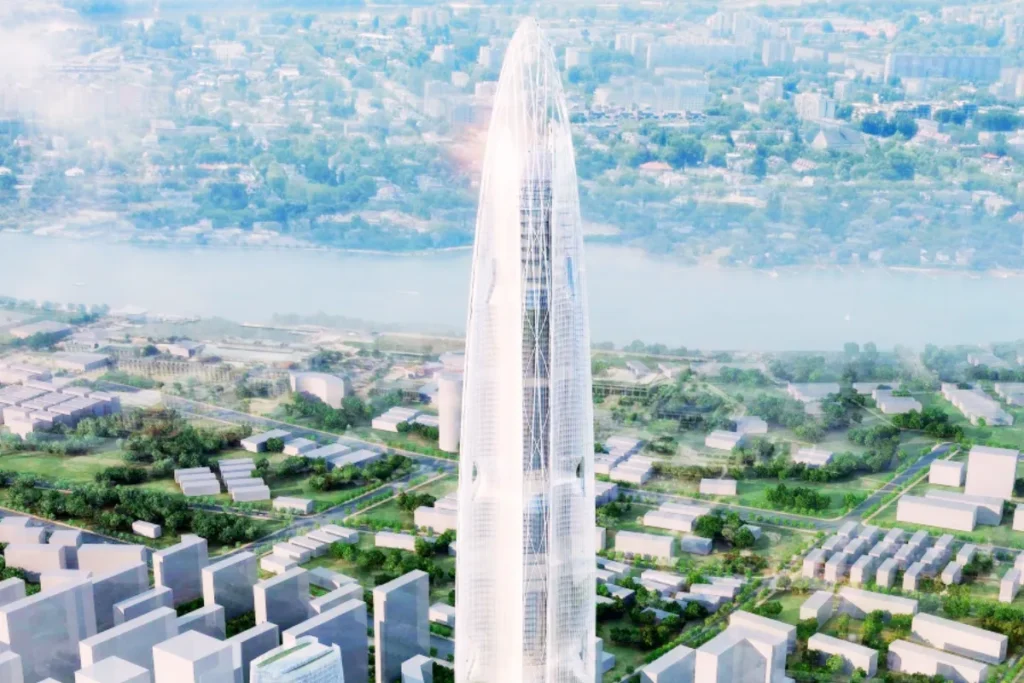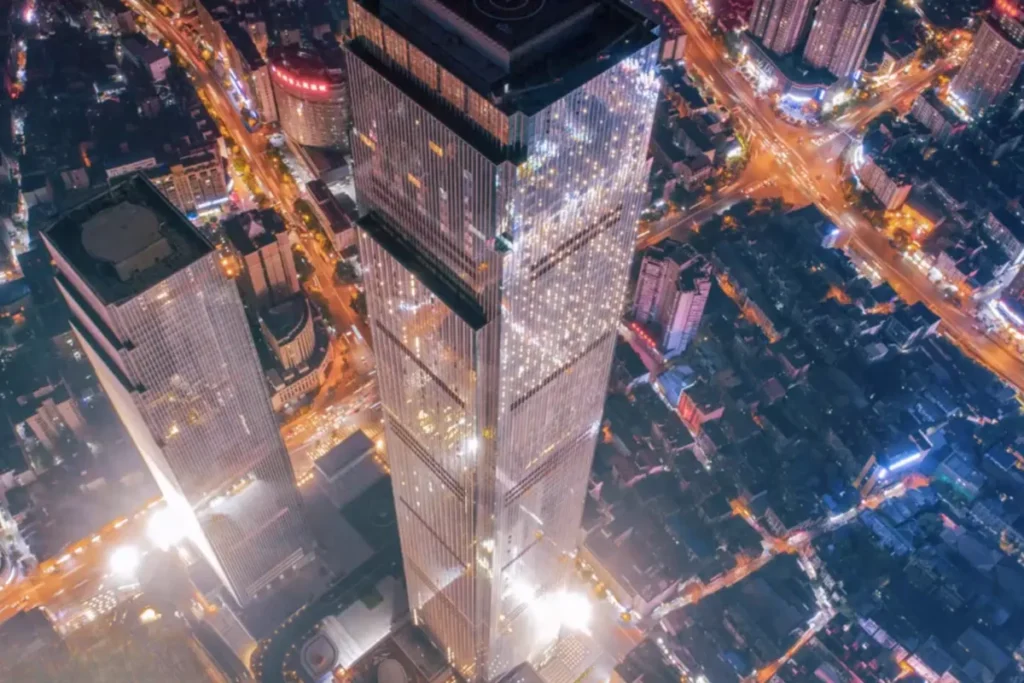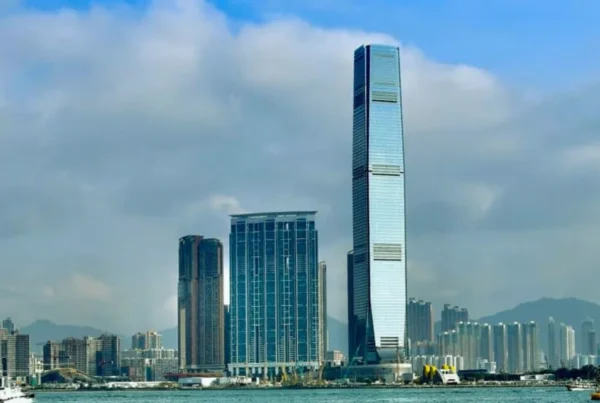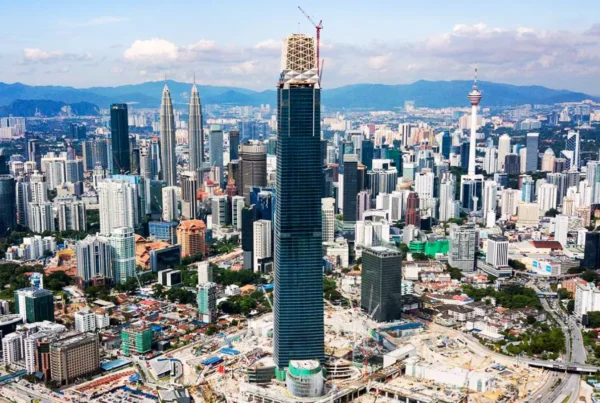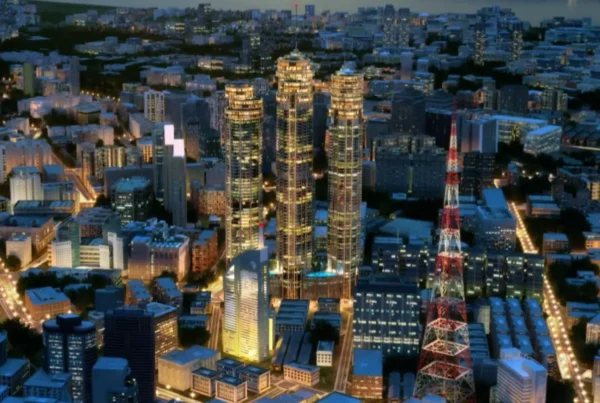Table Of Contents
- Introduction Of The Tallest Buildings In China
- Top 10 Tallest Buildings In China
- 1. Shanghai Tower
- 2. Ping An International Finance Centre
- 3. Guangzhou CTF Finance Centre
- 4. Tianjin CTF Finance Centre
- 5. China Zun
- 6. Shanghai World Financial Center
- 7. International Commerce Centre
- 8. Wuhan Greenland Center
- 9. Changsha IFS Tower T1
- 10. Suzhou IFS
- What Are The Tallest Buildings In Shanghai?
- Interesting Facts About The Tallest Buildings In China
- Advantages & Challenges Of The Tallest Buildings In China
- Conclusion
- FAQS
Introduction
China has really tall buildings that are like giants in cities such as Shanghai and Beijing. They are super tall and look amazing. Shanghai Tower is the tallest building in China, which is a huge 632 meters tall, and the Guangzhou CTF Finance Centre stands tall at 530 meters. These buildings are not just big; they also show how advanced China is in building cool stuff.
Let’s explore these amazing buildings, how tall they are, how many floors they have, and what they mean for China’s cities and how they grow.
Top 10 Tallest Buildings In China 2024
| Name | Hight | Floors | Built Year | |
| 1 | Shanghai Tower | 632 m (2,073 ft) | 128 | 2015 |
| 2 | Ping An International Finance Centre | 599.1 m (1,966 ft) | 115 | 2017 |
| 3 | Guangzhou CTF Finance Centre | 530 m (1,739 ft) | 111 | 2016 |
| 4 | Tianjin CTF Finance Centre | 530 m (1,739 ft) | 97 | 19 |
| 5 | China Zun | 527.7 m (1,731 ft) | 109 | 2018 |
| 6 | Shanghai World Financial Center | 492 m (1,614 ft) | 101 | 2008 |
| 7 | International Commerce Centre | 484 m (1,588 ft) | 108 | 2010 |
| 8 | Wuhan Greenland Center | 475.6 m (1,560 ft) | 101 | 2023 |
| 9 | Changsha IFS Tower T1 | 452.1 m (1,483 ft) | 94 | 2018 |
| 10 | Suzhou IFS | 450 m (1,476 ft) | 95 | 2019 |
1. Shanghai Tower
Shanghai Tower, located in Shanghai, stands tall at 632 meters (2,073 feet) with an impressive 128 floors, and this is Shanghai’s tallest building. This architectural marvel was completed in 2015. As one of the world’s tallest buildings, it offers breathtaking views of the cityscape. The tower’s sleek design and modern construction showcase Shanghai’s dynamic skyline.
2. Ping An International Finance Centre
In Shenzhen, the Ping An International Finance Centre commands attention, reaching a height of 599.1 meters (1,966 feet) with 115 floors. Established in 2017, this skyscraper is a symbol of modernity and innovation in the city. Its towering presence contributes to Shenzhen’s ever-evolving skyline, showcasing the impressive feats of contemporary architecture.
3. Guangzhou CTF Finance Centre
Guangzhou CTF Finance Centre, situated in Guangzhou, soars to a height of 530 meters (1,739 feet) and encompasses 111 floors. Erected in 2016, this skyscraper is a testament to architectural prowess, adding to the city’s dynamic landscape. Its sleek design and impressive stature make it a notable landmark, symbolizing Guangzhou’s progress and modernity.
4. Tianjin CTF Finance Centre
The Tianjin CTF Finance Centre in Tianjin stands proudly at a height of 530 meters (1,739 feet) with 97 floors. Completed in 2019, this architectural marvel adds to Tianjin’s skyline, reflecting modernity and progress. The sleek design and impressive height make it a prominent feature in the cityscape, showcasing engineering excellence.
5. China Zun
In Beijing, the China Zun Towers, above 527.7 meters (1,731 feet) with 109 floors, completed its construction in 2018. Its distinctive design and commanding height make it a landmark in the city, symbolizing China’s progress and economic strength. The China Zun stands as a modern icon, blending technology and aesthetics to leave a lasting impression on the Beijing skyline.
You can also read about Tallest Buildings In India.
6. Shanghai World Financial Center
Shanghai World Financial Center, located in Shanghai, rises to a height of 492 meters (1,614 feet) with 101 floors. Completed in 2008, this iconic skyscraper is a key feature of Shanghai’s skyline, showcasing a blend of modern architecture and financial prowess. Its unique trapezoidal aperture design makes it a standout landmark, symbolizing China’s economic prominence.
7. International Commerce Centre
The International Commerce Centre in Hong Kong stands tall at 484 meters (1,588 feet) with 108 floors, completing its construction in 2010. As a prominent skyscraper in Hong Kong, it signifies the city’s global financial status. The sleek and modern design of the ICC adds to Hong Kong’s impressive skyline, blending commerce and architecture.
8. Wuhan Greenland Center
Wuhan Greenland Center, located in Wuhan, reaches a height of 475.6 meters (1,560 feet) with 101 floors. Expected to be completed in 2023, this upcoming skyscraper will contribute to Wuhan’s evolving skyline. The tower’s modern design and substantial height reflect the city’s commitment to growth and development.
9. Changsha IFS Tower T1
Changsha IFS Tower T1 in Changsha stands impressively at 452.1 meters (1,483 feet) with 94 floors, having been completed in 2018. This skyscraper contributes to Changsha’s modern skyline, blending contemporary design with urban functionality. The Tower T1 is a symbol of the city’s ambition and economic vitality.
10. Suzhou IFS
Suzhou IFS, situated in Suzhou, stands tall at 450 meters (1,476 feet) with 95 floors. Completed in 2019, this skyscraper is a prominent feature of Suzhou’s modern skyline. Its impressive height and contemporary design reflect the city’s commitment to urban development. Suzhou IFS serves as a symbol of economic growth and innovation in the region, contributing to the city’s identity as a dynamic and forward-looking hub in China.
What Are The Tallest Buildings In Shanghai?
| Name | Hight | Floors | Built Year | |
| 1 | Shanghai Tower | 632m (2,073ft) | 128 | 2015 |
| 2 | Shanghai World Financial Center | 492m (1,614ft) | 101 | 2008 |
| 3 | Jin Mao Tower | 421m (1,380ft) | 88 | 1999 |
| 4 | Shimao International Plaza | 333m (1,093ft) | 60 | 2006 |
| 5 | White Magnolia Plaza | 320m (1,050ft) | 67 | 2017 |
Interesting Facts About The Highest Buildings In China
- The Shanghai Tower is the tallest building in Shanghai, and it has its own weather system.
- The Ping An International Finance Centre has a vertical farm.
- The Guangzhou CTF Finance Centre has a skywalk.
- The Tianjin CTF Finance Centre has a revolving restaurant.
- The China Zun has a wind turbine that generates enough electricity.
- The Shanghai World Financial Center has a hotel that is said to be the highest.
- The International Commerce Centre has a shopping mall.
- The Wuhan Greenland Center has the world’s highest swimming pool.
- The Changsha IFS Tower T1 has a rooftop garden that is open to the public.
- The Suzhou IFS has a museum that tells the story of the city’s history and culture.
You can also read about Tallest Youtubers Heights.
Advantages & Challenges Of The Biggest Buildings In China
Advantages
Challenges
- Improved skyline and aesthetics
- Increased office space and economic growth
- Symbol of progress and modernity
- Tourist attractions
- Sustainable design features
- Construction costs and financial risks.
- Shadowing and sunlight obstruction
- Structural stability and wind resistance
- Impact on urban planning and infrastructure
- Environmental impact and sustainability concerns
Advantages
- Improved skyline and aesthetics
- Increased office space and economic growth
- Symbol of progress and modernity
- Tourist attractions
- Sustainable design features
Challenges
- Construction costs and financial risks.
- Shadowing and sunlight obstruction
- Structural stability and wind resistance
- Impact on urban planning and infrastructure
- Environmental impact and sustainability concerns
Conclusion
China’s skyline is adorned with incredible skyscrapers that stand as symbols of human achievement and progress. These towering structures, from the majestic Shanghai Tower to the elegant Guangzhou CTF Finance Centre and many others, not only touch the clouds but also reflect the nation’s dedication to modernity and advancement.
If you want read more about Tallest Dinosaur Ever / Tallest Buildings In Texas State and many more articles kindly click the link at Tallestly.
FAQs
What is the tallest building in Shanghai?
Shanghai Tower, 632 m (2,073 ft), completed in 2015.
What is China's most famous building and landmark?
The Forbidden City, the world’s largest palace complex, served as the imperial palace for nearly 500 years during the Ming and Qing dynasties.

